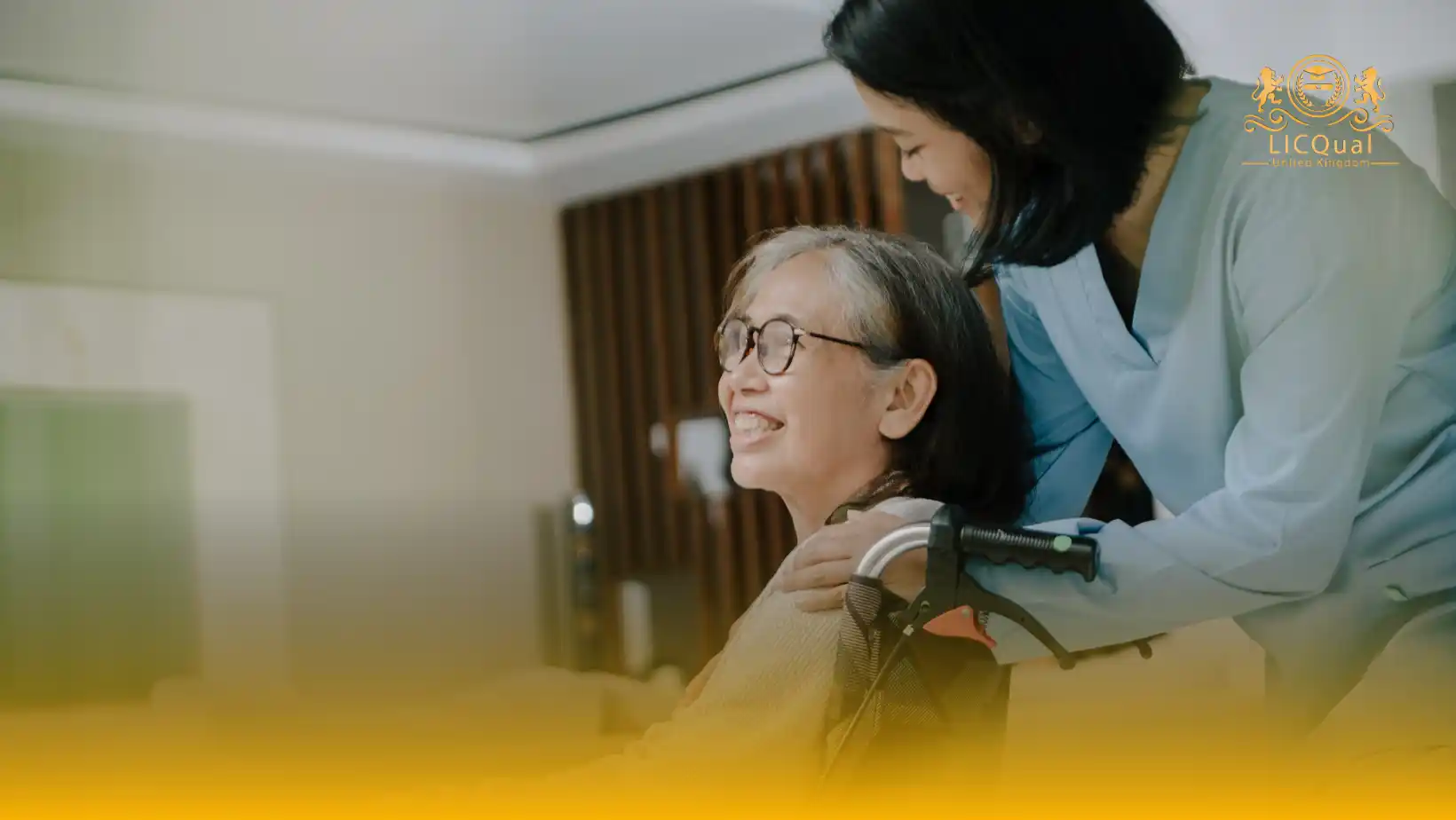The LICQual Level 3 Certificate in Geriatric Dentistry is a specialised qualification tailored for dental professionals seeking to advance their knowledge and skills in the care of older adults. This course is specifically designed for learners with existing dental experience, making it unsuitable for fresh candidates. It provides an excellent opportunity for professionals aiming to enhance their career prospects, deepen their clinical expertise, and engage in meaningful Continuing Professional Development (CPD).
Throughout the course, learners will explore the unique oral health challenges faced by the ageing population, including age-related diseases, complex medical conditions, and the importance of holistic, patient-centred care. The qualification covers essential topics such as assessment and treatment planning, effective communication with elderly patients, and management strategies that respect the physical and psychological needs of older adults.
Centres delivering the LICQual Level 3 Certificate in Geriatric Dentistry are required to maintain high standards by employing competent and qualified staff with specialist knowledge in geriatric dental care. They must also provide comprehensive learning materials, access to clinical facilities, and appropriate resources to ensure learners receive high-quality training and achieve successful outcomes.
Course Overview
Qualification Title
LICQual Level 3 Certificate in Geriatric Dentistry
Total Units
6
Total Credits
24
GLH
120
Qualification #
LICQ2200646
Qualification Specification
To enroll in the LICQual Level 3 Certificate in Forensic Odontology, applicants must meet the following criteria:
|
Qualification# |
Unit Title |
Credits |
GLH |
|---|---|---|---|
|
LICQ2200646-1 |
Introduction to Geriatric Dentistry |
4 |
20 |
|
LICQ2200646-2 |
Oral Health Assessment in Older Adults |
4 |
20 |
|
LICQ2200646-3 |
Common Oral Diseases in Geriatric Patients |
4 |
20 |
|
LICQ2200646-4 |
Treatment Planning and Care Management |
4 |
20 |
|
LICQ2200646-5 |
Communication and Psychological Considerations |
4 |
20 |
|
LICQ2200646-6 |
Ethical and Legal Issues in Geriatric Dentistry |
4 |
20 |
By the end of this course, learners will be able to:
Unit 1: Introduction to Geriatric Dentistry
- Understand the ageing process and its impact on oral health.
- Explain the scope and significance of geriatric dentistry within dental care.
- Recognise the unique oral health challenges faced by older adults.
Unit 2: Oral Health Assessment in Older Adults
- Demonstrate proficiency in conducting comprehensive oral health assessments for elderly patients.
- Use appropriate assessment tools and techniques specific to geriatric dentistry.
- Identify indicators of oral diseases and general health conditions affecting the elderly.
Unit 3: Common Oral Diseases in Geriatric Patients
- Recognise and describe common oral diseases prevalent among older adults.
- Understand the causes, symptoms, and progression of age-related oral conditions.
- Apply knowledge of disease management tailored to geriatric patients.
Unit 4: Treatment Planning and Care Management
- Develop patient-centred treatment plans considering medical history, social circumstances, and oral health needs.
- Implement care management strategies that address the complexities of elderly patients.
- Coordinate multidisciplinary approaches to support holistic patient care.
Unit 5: Communication and Psychological Considerations
- Demonstrate effective communication techniques tailored to elderly patients.
- Understand psychological and social factors influencing dental care for older adults.
- Foster a supportive environment that respects patient dignity and autonomy.
Unit 6: Ethical and Legal Issues in Geriatric Dentistry
- Understand legal responsibilities and ethical principles in the care of elderly patients.
- Apply knowledge of consent, capacity, and confidentiality in geriatric dentistry.
- Recognise professional standards and regulatory requirements affecting practice.
The LICQual Level 3 Certificate in Geriatric Dentistry is ideal for dental professionals and healthcare providers who wish to specialize in the oral care of older adults. This course is designed for those passionate about improving the quality of life for the elderly through effective dental care, prevention strategies, and compassionate communication. Whether you work in a clinical setting, community care, or dental education, this program helps you build the skills needed to address the growing demand for geriatric dental management.
1. Dental Practitioners Looking to Specialize in Geriatric Care
- Dentists aiming to provide dedicated dental care for aging patients.
- Practitioners seeking to expand their expertise in senior oral health.
- Professionals looking to enhance patient-centered care for older adults.
- Dental experts wanting to gain certification in geriatric dentistry.
- Clinicians interested in building long-term trust with elderly patients.
2. Dental Hygienists and Assistants
- Hygienists seeking advanced training in elderly oral hygiene management.
- Assistants working closely with senior patients in dental clinics.
- Professionals aiming to learn preventive approaches for geriatric care.
- Team members looking to improve patient handling and comfort.
- Learners seeking to contribute to comprehensive dental support for seniors.
3. Healthcare and Nursing Professionals
- Nurses and caregivers involved in elderly oral hygiene routines.
- Medical professionals looking to understand oral-systemic health links.
- Geriatric healthcare staff providing multidisciplinary patient support.
- Hospital workers managing dental issues in long-term care residents.
- Professionals aiming to integrate dental awareness into elderly care plans.
4. Public Health and Community Care Workers
- Community health practitioners focused on elderly wellness programs.
- Workers promoting oral health awareness among aging populations.
- NGOs or public service staff advocating preventive dentistry for seniors.
- Outreach professionals engaged in rural or underprivileged areas.
- Coordinators designing oral care campaigns for the elderly.
5. Dental Educators and Academic Professionals
- Teachers training future dental professionals in geriatric practices.
- Educators incorporating geriatric modules into dental curricula.
- Researchers studying oral pathology and prosthodontics in seniors.
- Academic professionals promoting evidence-based elderly dental care.
- Experts aiming to improve geriatric dentistry education globally.
6. Aspiring Dental Care Specialists
- New dental graduates exploring specialization options.
- Students motivated by senior patient care and dental innovation.
- Individuals seeking international recognition in dental expertise.
- Learners preparing for advanced studies in prosthodontics or oral medicine.
- Aspiring professionals dedicated to lifelong patient-centered care.
7. Geriatric Care Facility Administrators
- Managers overseeing dental health programs in retirement homes.
- Coordinators improving oral care delivery systems for elderly residents.
- Policy planners designing integrated geriatric health programs.
- Administrators seeking to enhance staff competence in oral care.
- Leaders ensuring compliance with senior dental care standards.
This course is perfectly suited for anyone committed to enhancing elderly oral health care through specialized training, empathy, and innovation — preparing professionals to make a real difference in the lives of aging patients.
To deliver the LICQual Level 3 Certificate in Geriatric Dentistry effectively, centres must meet the following requirements to ensure high-quality training and successful learner outcomes:
- Qualified and Experienced Tutors: Centres must employ dental professionals with recognised qualifications and specialised expertise in geriatric dentistry to provide expert tuition and supervision.
- Adequate Clinical Facilities: Access to clinical environments equipped to support the care of elderly patients, including necessary dental instruments and materials, is essential.
- Comprehensive Learning Resources: Centres should provide up-to-date textbooks, digital content, and practical aids relevant to geriatric dentistry.
- Health and Safety Compliance: Centres must adhere to health and safety regulations, infection control policies, and clinical governance standards to maintain a safe learning environment.
- Robust Assessment and Quality Assurance: Implementation of assessment procedures aligned with LICQual standards and internal quality assurance systems is required.
- Efficient Administrative Support: Centres should have systems in place for learner registration, progress monitoring, and certification management.
- Access to Supervised Practical Experience: Centres must facilitate opportunities for learners to gain hands-on experience in geriatric dental care under qualified supervision.
Meeting these centre requirements ensures learners receive professional, safe, and effective training in geriatric dentistry.
Assessment and Verification
All units within this qualification are subject to internal assessment by the approved centre and external verification by LICQual. The qualification follows a criterion-referenced assessment approach, ensuring that learners meet all specified learning outcomes.
To achieve a ‘Pass’ in any unit, learners must provide valid, sufficient, and authentic evidence demonstrating their attainment of all learning outcomes and compliance with the prescribed assessment criteria. The Assessor is responsible for evaluating the evidence and determining whether the learner has successfully met the required standards.
Assessors must maintain a clear and comprehensive audit trail, documenting the basis for their assessment decisions to ensure transparency, consistency, and compliance with quality assurance requirements.







